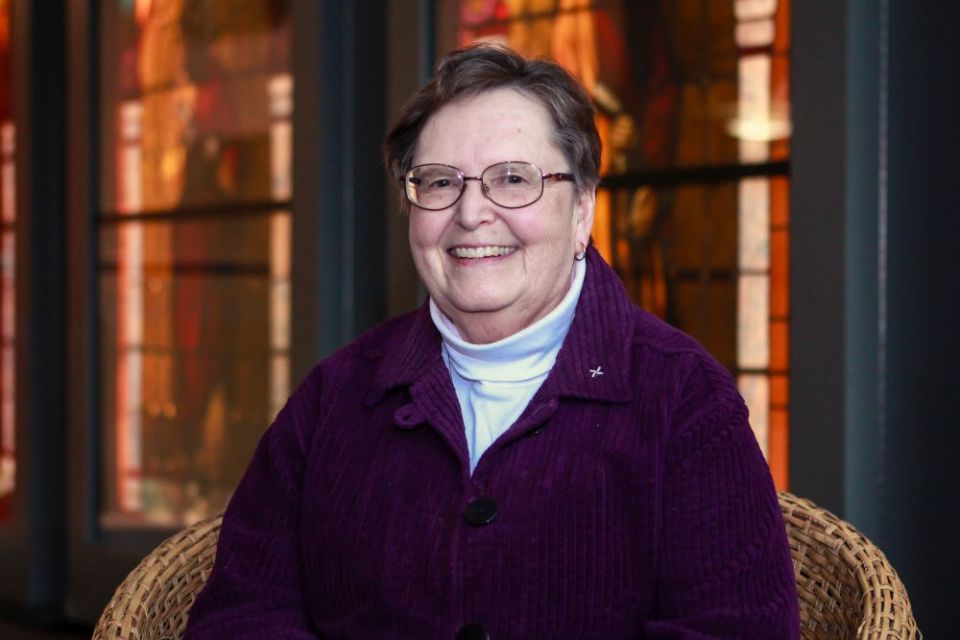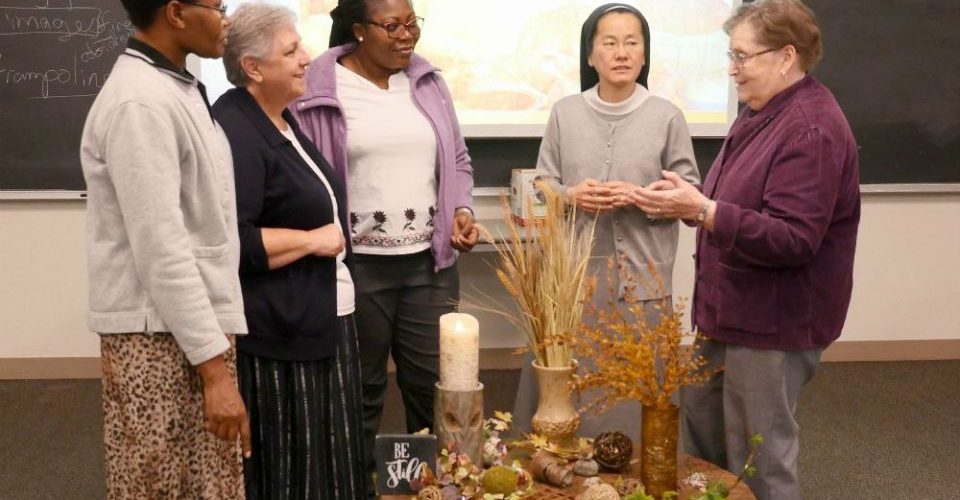
“For some of them, the only form of prayer they knew was going to Mass and praying the rosary. For them to have spontaneous prayer and opportunities for hearing religious music as part of our prayer — and drawing and looking at art is part of our prayer — all of the possibilities of using not just our head, but our heart and our hands and our bodies to develop who we are as full human beings.”
Lucianne Siers, OP, is director of the Institute of Religious Formation at Catholic Theological Union. She facilites a program to train men and women who lead formation programs in their communities. Georgia Perry with Global Sisters Report interviewed Siers about the program she developed.
In your program, in addition to promoting diversity, you also make efforts to encourage individuality. Why is that important, and how do you do that?
What we’re trying to do is just a holistic program to develop in religious life the fullest possibilities of each person. That’s what we’re doing in this program. They form community. We have discussions, and we play together. We do a lot of reflection and challenge one another so that our participants can build the skills they need so when they go home, they have some reference points, and they know they can do it. … Our program emphasizes a very different way than the way formation has been done historically. We encourage the formator to ask each candidate what gifts they bring to the congregation. How can the formator and the congregation they’re looking at assist them in developing those gifts?
Can you share some more details about the program you developed?
It is a nine-month program invoking the question, “How do we do formation?” Formation is the whole idea of bringing forth anybody who comes to us who would like to be a member of a congregation, a person that’s basically discerning. Does this person really want to be a religious, or is this just a phase?
Right now, we have four women who are being trained to learn how to develop their skills to form young women who are considering entering their communities. They came here from Australia, Ghana, South Korea and Kenya. Last year, we welcomed women from China, Vietnam and Bangladesh, as well.
What we do, along with the seven men in our program, is model what a formation program can be. So we develop prayer styles and reflection groups. We have classes Monday through Friday in theology and Scripture and psychology and spirituality and religious life. There is also a component that is a whole understanding of developing a community interculturally and how to do that.
“Instead of making us all look the same, talk the same, and walk the same, we are really working to develop the individuality and the gifts that God made that person to be and to really call that forth.”
Lucianne Siers OP


